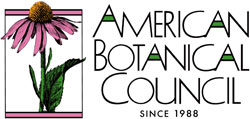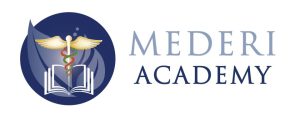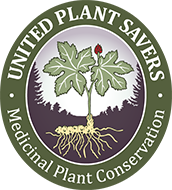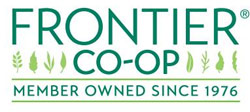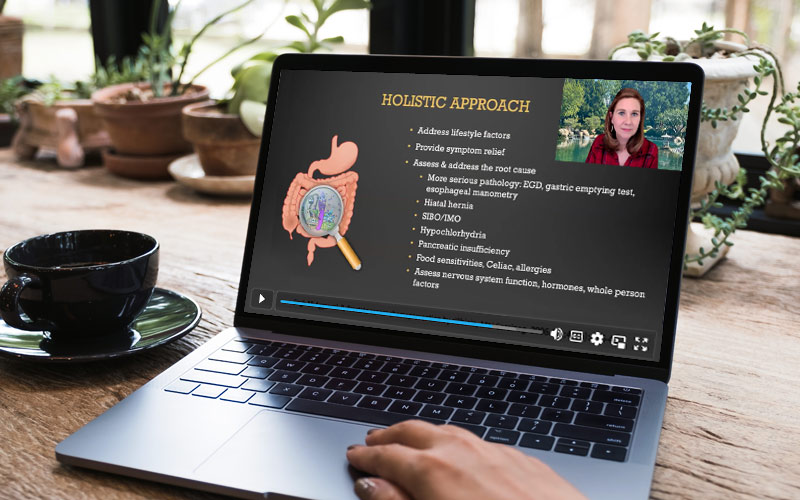
A video series for health care providers – with pharmacy hours for naturopathic physicians – bundled together in one discounted package:
- Eight (8) video lectures (1.5 hours each)
- Digital book of notes (90-page PDF)
- 10 pharmacy + 2 general continuing education credits for naturopathic physicians
- Approved by Oregon Board of Naturopathic Medicine (OBNM)
- Order with one click for $99 ($160 value)
Note: The information in this series is provided as a research resource for health professionals and is not intended to replace diagnosis and treatment by a qualified health care practitioner.
Video Series Details
(See below for titles and descriptions of videos)
One click orders all 8 videos plus a 90-page PDF of lecture notes. Together these videos provide comprehensive information on a range of botanical therapies for health conditions while also providing pharmacy hours for continuing education.
The series begins with Kenneth Proefrock, NMD and several case studies in a variety of neurodegenerative conditions, illustrating the pharmacology of conventional care and how to implement alternatives. Then, Lise Alschuler, ND, FABNO discusses a botanically-based approach to distress with strategies for supporting the discontinuance of anxiolytics and antidepressants.
Next, Jen Stovall, BSN, RN outlines preventative strategies for support of clients using opioids, including herbal and nutritional protocols that address the long-term impacts of opioid use. Then, using the principles of harm reduction as a framework, Jen examines conventional concepts of addiction and alternative ways to support those experiencing addiction.
Following this, Jillian Stansbury, ND, Katie Stage, ND, RH (AHG), FABNG and Brianna Piche, ND, RH (AHG) present a panel on the most common gastrointestinal conditions (IBS, constipation and GERD) encountered with practical suggestions for management, and clinical examples of botanicals and nutrients used for support.
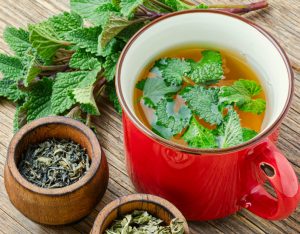 Then the series dives into cytotoxic herbs for cancer care with Chanchal Cabrera, FNIMH, RH (AHG), including a discussion of pharmacology, pharmacokinetics, and herb-drug interactions. Next, Katie Stage, ND, RH (AHG), FABNG looks at herbal and pharmaceutical treatments for allergies and related conditions such as sinusitis and allergic conjunctivitis.
Then the series dives into cytotoxic herbs for cancer care with Chanchal Cabrera, FNIMH, RH (AHG), including a discussion of pharmacology, pharmacokinetics, and herb-drug interactions. Next, Katie Stage, ND, RH (AHG), FABNG looks at herbal and pharmaceutical treatments for allergies and related conditions such as sinusitis and allergic conjunctivitis.
The series concludes with a presentation from Kenneth Proefrock, NMD, as he explores five cases and investigates the initial cause of the brain injury, what pharmaceuticals and other treatments have been given, and how botanicals and nutrients can have a profound therapeutic effect on these conditions.
Video presentations offer complete clinical information, with the speaker and the PowerPoint playing together in an ideal format for online learning.
(Series price of $99 includes a 90-page PDF of lecture notes.)
Continuing Education for Naturopathic Physicians: If CME has not previously been earned for the lectures listed below you can earn a total of:
- 10 pharmacy hours + 2 general hours, approved by OBNM
- Please check your CE records to ensure you have not claimed these recordings previously.
- Full CE details
The chart below shows the number of credits available for each lecture in the series. Each lecture is 1.5 hours long, and CE is available for either opioid credit OR pharm credit but not both.
| Presentation Title and Speaker | Topic | General Hours (approved by OBNM) | Pharm Hours (approved by OBNM) |
|---|---|---|---|
| Case Studies in the Naturopathic Treatment of Neurodegenerative Conditions with Kenneth Proefrock, NMD | Neurological Health | 1.5 | |
| Distress, Anxiety and Depression: A Botanically-Based Approach with Lise Alschuler, ND, FABNO | Mental Health | 0.5 | 1.0 |
| Managing the Impacts of Opioid Use Using Herbs & Nutrition with Jen Stovall, BSN, RN | Substance Use | 1.5 (or 1.5 opioid hours for AZ NDs, approved by SUHS) | |
| Soothing the Hungry Ghost: Supporting our Clients When They are Ready to Quit Using Opioids with Jen Stovall, BSN, RN | Substance Use | 1.5 (or 1.5 opioid hours for AZ NDs, approved by SUHS) | |
| Panel Discussion: Botanical Therapies for Functional GI Issues with Brianna Piche, ND, RH (AHG), Katie Stage, ND, RH (AHG), FABNG and Jillian Stansbury, ND | Gastrointestinal Health | 0.5 | 1.0 |
| Three Cytotoxic Herbs – A Materia Medica Review of Artemisia absinthium, Thuja occidentalis and Taxus brevifolia in Clinical Practice with Chanchal Cabrera, FNIMH, RH (AHG) | Cancer | 0.5 | 1.0 |
| "I'm Not Sick…It's Allergies!" Natural Treatments for Allergic Conditions with Katie Stage, ND, RH (AHG), FABNG | Allergies | 0.5 | 1.0 |
| Case Studies in the Naturopathic Management of Traumatic Brain Injury with Kenneth Proefrock, NMD | Brain Damage; Neurological Health | 1.5 |
Videos included in this series:
Case Studies in the Naturopathic Treatment of Neurodegenerative Conditions
Kenneth Proefrock, NMD
Several case studies in a variety of neurodegenerative conditions are presented to illustrate the pharmacology of conventional care and how we specifically strategize to implement alternatives. In each case we discuss the biochemistry and rationale for the prescribed pharmacologic agents and then the botanical and nutritional strategies that we use to eliminate the pharmaceutical, or minimize its dosage, and/or modify its side effects.
Cases included in this discussion: Parkinson’s disease (2 cases), Multiple Sclerosis (1 case with commentary on other autoimmune conditions) and Dementia/Cognitive decline/Alzheimer’s (2 cases–Lewy body and Bismuth toxicity). (Catalog Code: 23ME14)
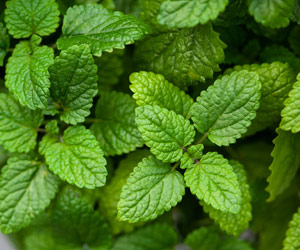 Distress, Anxiety and Depression: A Botanically-Based Approach
Distress, Anxiety and Depression: A Botanically-Based Approach
Lise Alschuler, ND, FABNO
Is “stress” a misnomer for anxiety and depression? The modern-day solution to chronic stress is often anxiolytic medications including benzodiazepines, 5HT agonists and beta-blockers, and antidepressant medications including SSRIs, SNRIs, tricyclic and atypical antidepressants. While these medications may be helpful in some cases, many people experience side effects, dependence, and… continued stress. We present a botanically-based approach to distress including strategies for supporting the discontinuance of anxiolytics and antidepressants. (Catalog Code: 23ME02)
Managing Impacts of Opioid Use Using Herbs and Nutrition
Jen Stovall, BSN, RN
Opioids are an important and necessary medicine for many of our clients. Unfortunately, long-term opioid use can impact both physical and mental health. In this presentation, we outline patterns of imbalance associated with opioid use and preventative strategies for support. Because opioids impact the body systems in predictable ways, resulting in similar symptom patterns, we look at both herbal and nutritional protocols that address the long-term impact of opioid use. Material presented is informed by the reality that not everyone is able, willing, or ready to quit using opioids and the belief that they still deserve support. We also consider commonly held myths about opioid users, both prescription and recreational, and best practices that lead to empowerment rather than stigmatization. (Catalog Code: 23SW15)
Soothing the Hungry Ghost: Supporting our Clients When they are Ready to Quit Using Opioids
Jen Stovall, BSN, RN
Due to widespread opioid use in our culture, herbalists are sure to encounter clients seeking our support to help them quit using. Unfortunately, our cultural narrative around drug use does not allow for a tolerance of, much less identification with, addiction and so herbalists who want to help find there is a lack of practical information about how to provide support. In this class, Jen shares protocols she’s used in her practice to support clients who want to quit using opioids. Using principles of harm reduction as a framework to provide support, we examine conventional concepts of addiction from various angles as we explore alternative ways to support those experiencing addiction. (Catalog Code: 23SW16)
Panel: Botanical and other Natural Medicine for Functional Gastrointestinal (GI) Disorders
Brianna Piché, ND, RH (AHG), Katie Stage, ND, RH (AHG), FABNG and Jillian Stansbury, ND
These are some of the most common conditions encountered in medical practice, and their successful management can often provide a key to finding a path toward better health for many patients. Three experienced clinicians discuss three issues: GERD, IBS and constipation. A brief description of the condition is followed by practical suggestions for management and clinical examples of botanicals and nutrients. Also included are the common pharmaceuticals prescribed, and their side effects and possible advantages for healing. The discussion will then be opened up to questions from the online audience. (Catalog Code: 23SW20)
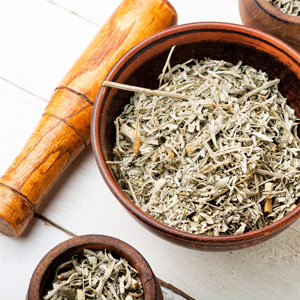 Three Cytotoxic Herbs – A Materia Medica Review of Artemisia absinthium, Thuja occidentalis and Taxus brevifolia in Clinical Practice
Three Cytotoxic Herbs – A Materia Medica Review of Artemisia absinthium, Thuja occidentalis and Taxus brevifolia in Clinical Practice
Chanchal Cabrera, FNIMH, RH (AHG)
Note: These three herbs should only be used by medical professionals with knowledge of their use and toxicity. These botanicals have both value and utility when combined with conventional chemotherapy and sometimes even up-regulating it, for example, artemisinin and conventional chemo for brain cancer. We will discuss strategic thinking with herbs in cancer care and prioritizing treatment. Included in the discussion:
- Pharmacology and how the herbs work, active pathways and clinical uses
- Pharmacokinetics and how the herbs get absorbed, distributed and eliminated
- Herb drug interactions, safety, dosing, contra-indications
(Catalog Code: 23SW03)
“I’m Not Sick…It’s Allergies!” Natural Treatments for Allergic Conditions
Katie Stage, ND, RH (AHG), FABNG
Allergies are common, affecting at least 7% of people in North America. Symptoms can be confusing in this post-pandemic time and can be frustrating at any time. This session discusses natural and herbal treatments for allergies and related conditions such as sinusitis and allergic conjunctivitis. We also review signs of more complex conditions such as mast cell disorders. Pharmaceutical treatments are also reviewed. (Catalog Code: 23SW12)
Case Studies in the Management of Traumatic Brain Injury
Kenneth Proefrock, NMD
Five cases illustrate the management of neurological injury resulting from a variety of events. We investigate the initial cause of the brain injury, what pharmaceuticals and other treatments have been given so far, and how botanicals and nutrients can have a profound therapeutic effect on these conditions, often leading the reduction and/or elimination of the pharmaceuticals prescribed. Cases include:
- 4-year-old female: Cerebral palsy with dystonia post-birth trauma
- 3-year-old male: Near-fatal drowning and persistent seizure disorders
- 22-year-old male: Concussion/post-concussion syndrome
- 32-year-old female: Chemical/Mold toxicity-induced neuro-inflammation
- 68-year-old female: Cerebro-vascular accident and neurological-inflammation
(Catalog Code: 23SW11)
Plus Video Series Lecture Notes in PDF Format (90-page digital book) included in the $99 package price.



